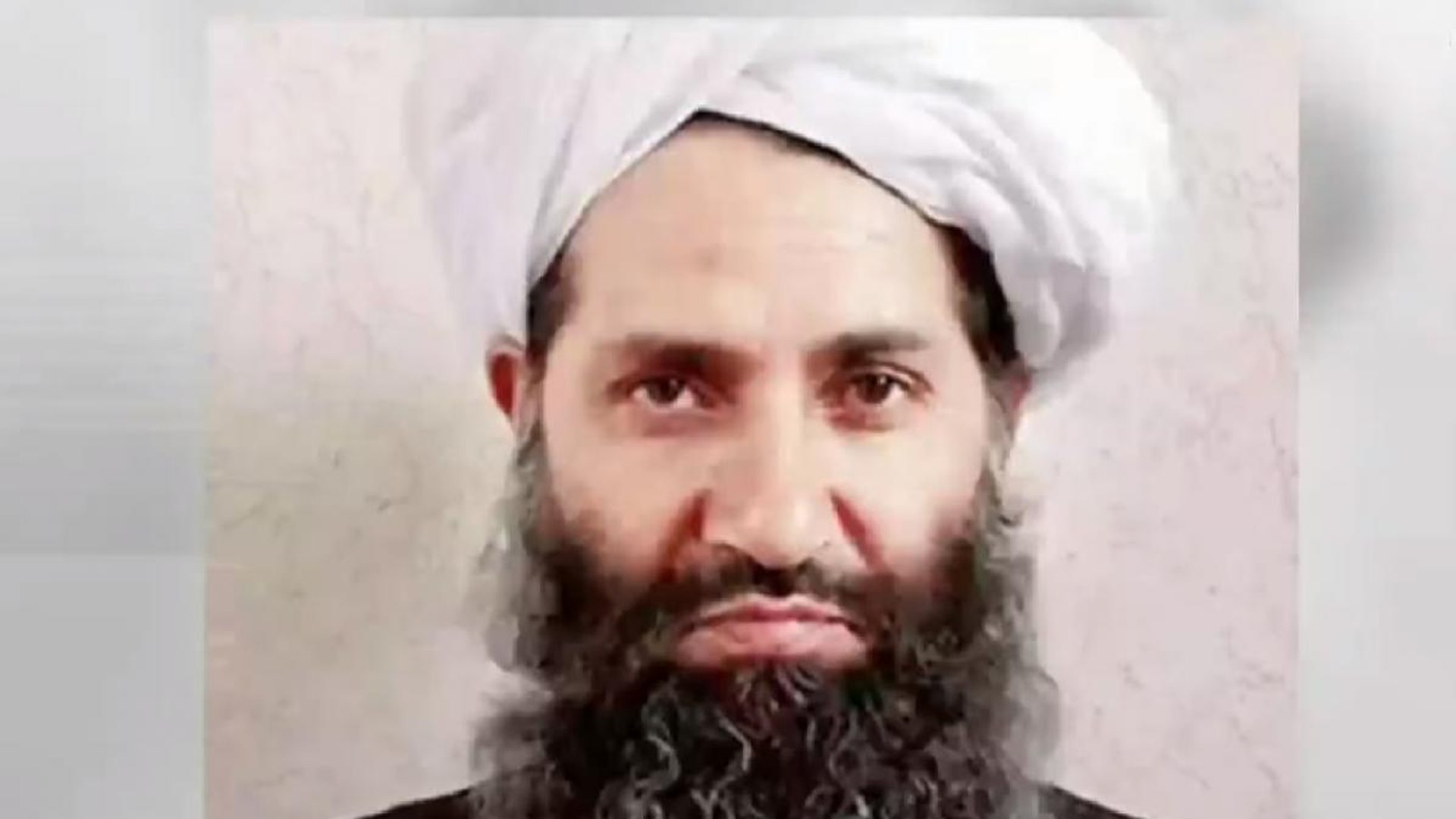A ten-minute audio tape attributed to the Taliban’s Supreme Leader Hibatullah Akhundzada appeared on 30 October, the first such communication since the jihadist takeover of Afghanistan in August. Hailed as Akhundzada’s “first public appearance” or his decision to step into “the limelight”, the reality is more complicated.
Little is known about Akhundzada, beyond his involvement in the struggle against the Soviets in the 1980s and his time as a judge under the last Taliban regime. Akhundzada moved to Pakistan with the rest of the Taliban and Al-Qaeda leadership in 2001. He became leader in 2016 after his predecessor was killed in a drone strike as he returned from Iran, where he had been meeting Iranian and Russian officials.
Much ink was spilled wondering about what the Taliban would do if they ever took back control of Afghanistan. Had anyone consulted Akhundzada’s statements in the years leading up to the fall of Kabul, the answers were clearly spelled out. It was all there: from the continuation of jihad until all of Afghanistan was under Taliban rule to depriving women of all rights once that conquest was completed.
Those prior statements were written. The audio clip currently circulating is allegedly from a longer address Akhundzada gave to Darul Uloom Hakimah seminary in Kandahar, the birthplace of the Taliban in 1994. The clip contains religious messaging, but references to political events that might help prove the date it was recorded on.
Indian intelligence has leaked to the press that the audio could have been fabricated by Pakistan’s Inter-Services Intelligence (ISI) agency in an effort to quell the instability caused by rumours of Akhundzada’s death. These reports from the Indian media are notoriously unreliable, but all the best disinformation is based on some truth, and they are working here with two facts that add to plausibility.
First, Pakistan really does control the Taliban — and indeed the whole entwined coalition of jihadists now ruling Afghanistan. The executive “Leadership Council” (Rahbari Shura) of the Taliban that Akhundzada heads is better known as the “Quetta Shura” after the city where it was in ISI custody until earlier this year. The ISI is very skilled at information operations and the Taliban’s communications run through Pakistan.
Second, the death of the first Taliban emir, Mullah Mohammad Omar, in 2013, was hidden for two years, even as statements continued to be issued in his name and Al-Qaeda reiterated its pledge of allegiance to the deceased. Various claims have been made that Akhundzada died last year, either from coronavirus (he’s in his 60s) or in a suicide bombing in Pakistan (there have been prior assassination attempts of this kind). Again, there is an inherent plausibility to these claims.
The likelihood is that baseless speculation and wilful disinformation are filling an information vacuum left by Akhundzada following the template set down by the Taliban founder Mullah Umar. This is a decision based partly on security considerations and partly to add to the mystique of the Supreme Leader. Still, because of what happened with Umar at the end, we never can be sure.










Join the discussion
Join like minded readers that support our journalism by becoming a paid subscriber
To join the discussion in the comments, become a paid subscriber.
Join like minded readers that support our journalism, read unlimited articles and enjoy other subscriber-only benefits.
Subscribe